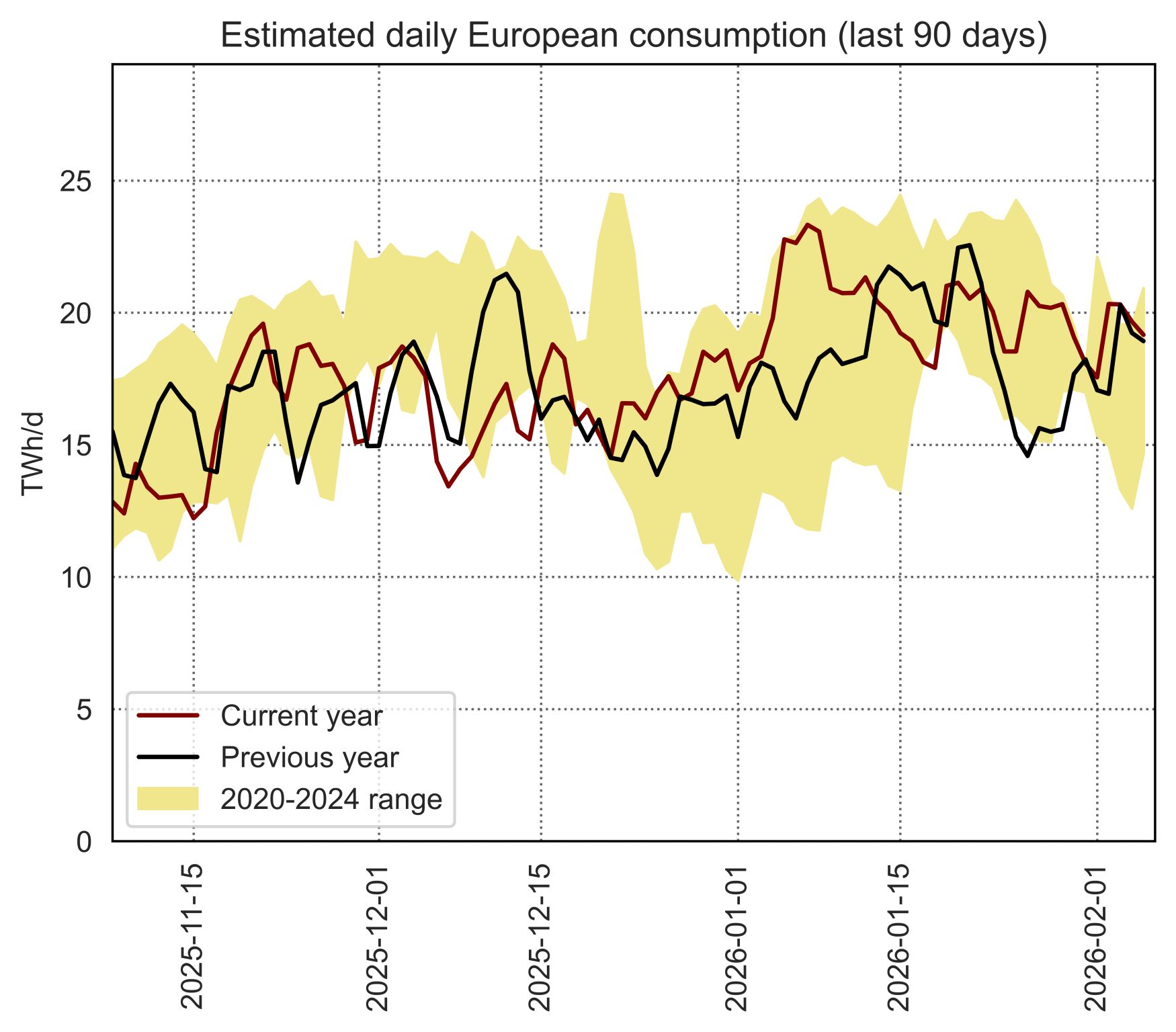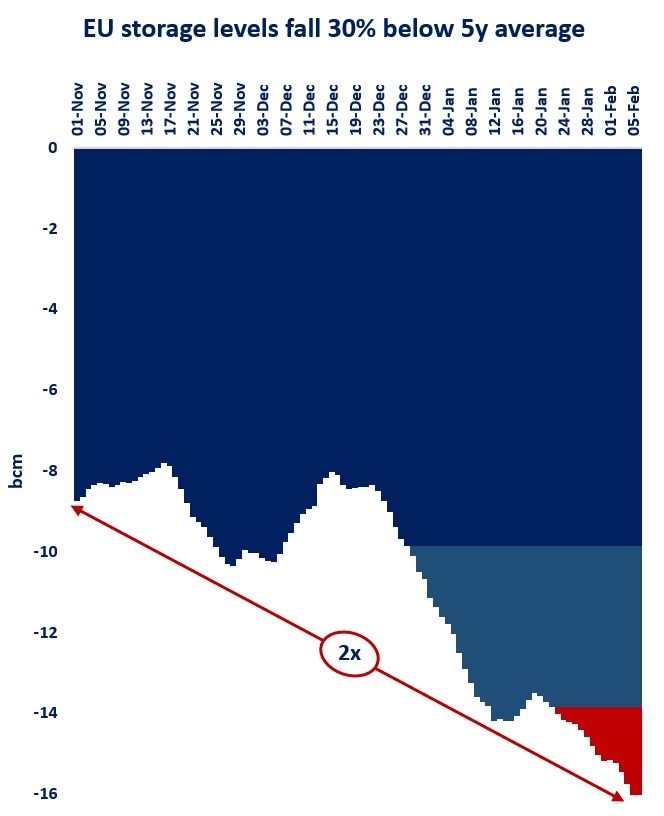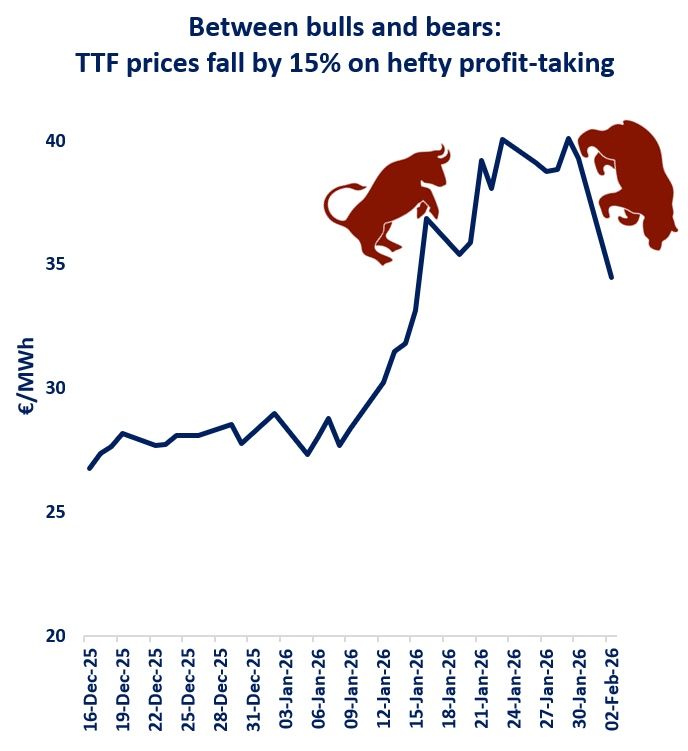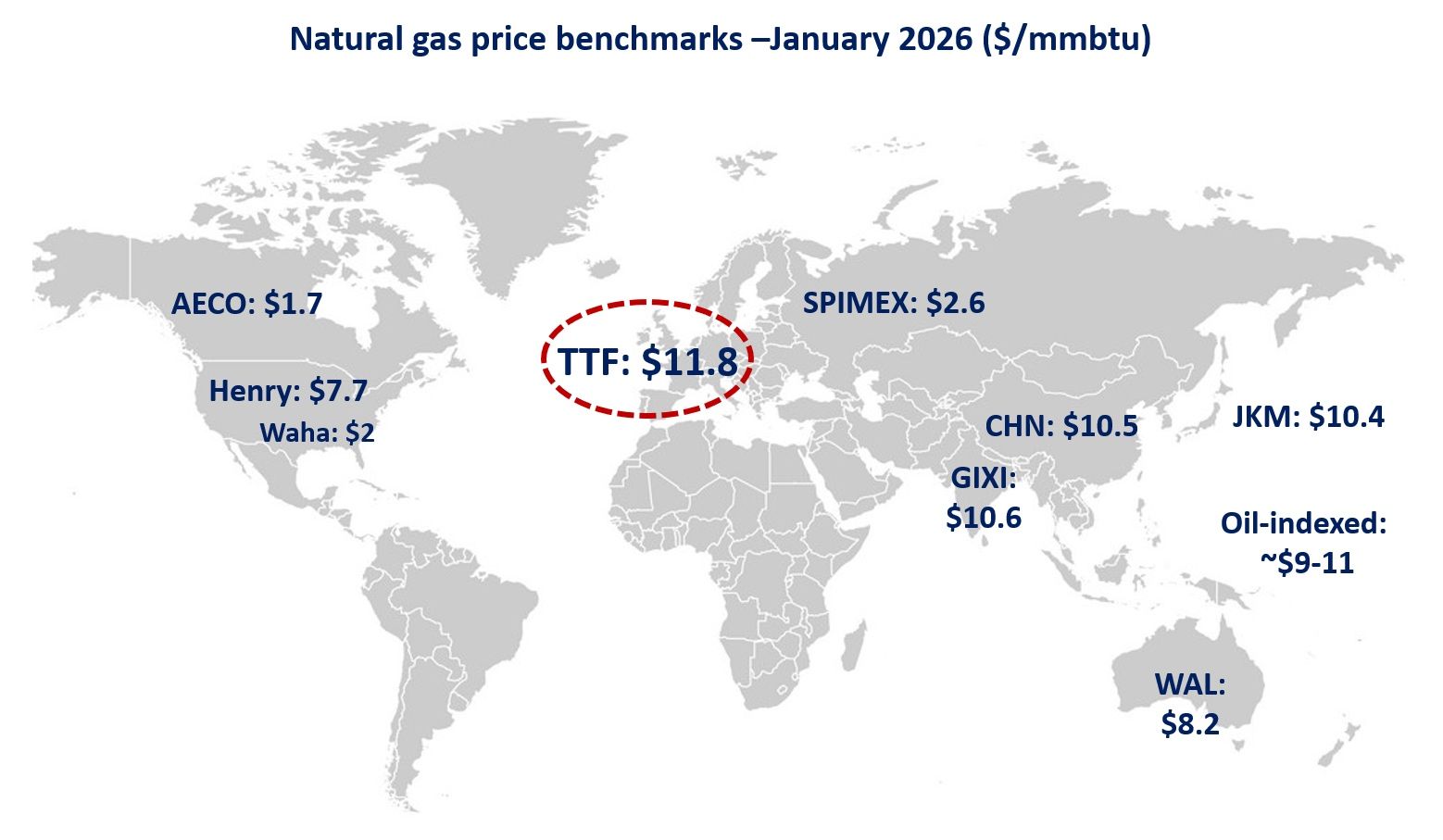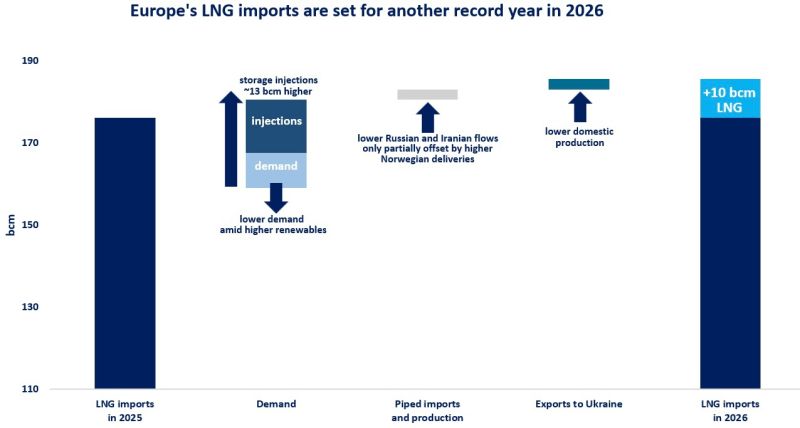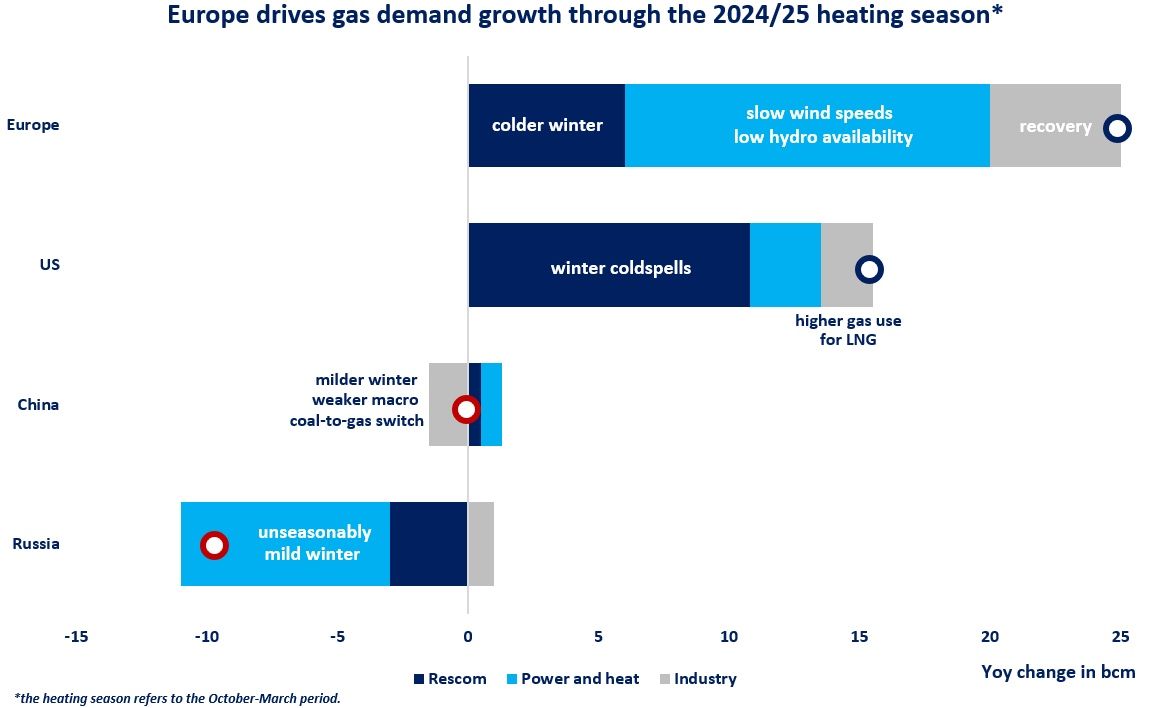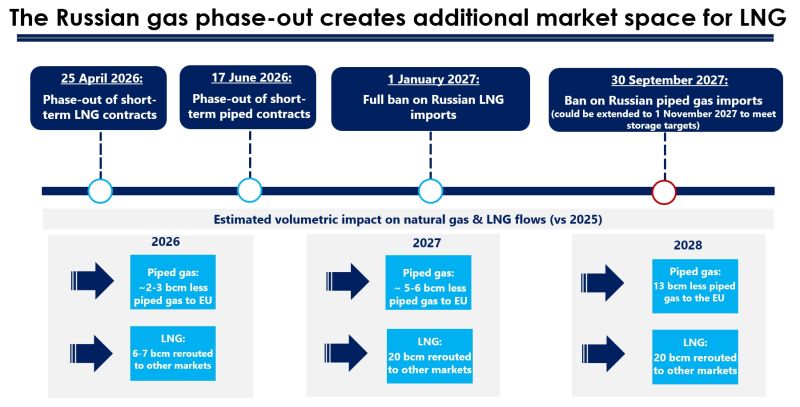

Russian gas transit flows via Ukraine stopped today, more than 50 years after the first drops of Siberian gas reached the Western European markets – still in the coldest years of the Cold War.
At the time, these pipelines were not only establishing a mutually beneficial economic relationship, but were also seen by many as a way to promote a peaceful cohabitation between the Soviet Union and the West.
The transit flows continued even after 24 February 2022, despite the raging war and attacks on Ukraine’s own energy system.
It is important to understand why Ukraine decided not to renew the transit contract with Russia: while Ukraine earns ~$0.8 billion from transit fees, Russia’s revenue from the gas sold via Ukraine is over $5 billion.
The halt of Russian gas via Ukraine would not pose an immediate supply security risk to the EU, but will naturally tighten the market and increase the EU’s LNG import requirements to substitute for the loss of around 15 bcm of piped gas.
TTF prices soared yesterday to over €50/MWh ($15/mmbtu) – their highest level of the year, as the market is still assessing the impact of the end of transit flows.
Source: Greg Molnar

